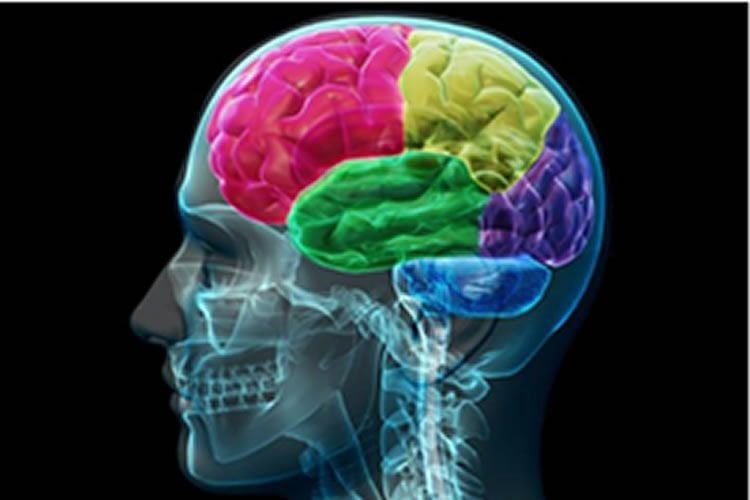Summary: A new study reveals those with a better working memory tend to get bored of experiences more quickly. The study could have implications for consumers and marketers in maintaining interest in their products.
Source: University of Kansas.
We’re fickle creatures. At least if we can remember to be, according to a new study led by a University of Kansas researcher of marketing and consumer behavior.
“People with larger working memory capacities actually encode information more deeply,” said Noelle Nelson, lead author of the work, which was published in the Journal of Consumer Research. “They remember more details about the things they’ve experienced, and that leads them to feel like they’ve had it more. That feeling then leads to the ‘large-capacity’ people getting tired of experiences faster.”
The study could have implications for marketers seeking to maintain interest in their products and brands. Consumers could also benefit from the research because it provides a window into how memory could be the key to becoming satiated, especially on products or habits they hope to quit, such as eating unhealthy foods.
“Our findings suggest that if they can enhance their memory for the other times they’ve eaten these foods, they may feel satiated and then not seek out those unhealthy things,” said Nelson, assistant professor of marketing and consumer behavior in the KU School of Business.
Nelson co-authored the study with Joseph Redden, associate professor of marketing at the University of Minnesota.
They conducted four separate experiments with undergraduate student participants. The researchers measured people’s working memory capacities in different ways, such as how well they could remember a string of letters or how they performed on the Simon memory game, where users must try to repeat a series of tones and lights.
Then participants performed a task where they would eventually become tired of what they experienced, like viewing paintings or listening to music.
“We found that their capacity predicted how fast they got tired of the art or music,” Nelson said. “People with larger memory capacities satiated on these things more quickly than people with smaller capacities. Essentially, large-capacity people perceive that they’ve experienced things more times because they remember those experiences better.”
Past research has only speculated on the link between memory and the rate of satiation, but this study provides direct evidence, she said.
Marketers could perhaps use this type of research to craft strategies on ways to keep people interested longer.

“For example, introducing new products or having distractions in ads might help break up the satiation process because they disrupt memory,” Nelson said.
The researchers didn’t specifically study overeating or unhealthy foods, but the findings should extend to those types of experiences, she said.
“Because a big part of overeating is psychological, a psychological solution such as memory processes could help people control their eating,” Nelson said. “Consumers might be able to satiate more quickly by simply recalling the last several times they ate.”
Source: University of Kansas
Image Source: NeuroscienceNews.com image is adapted from the University of Kansas news release.
Original Research: Abstract for “Remembering Satiation: The Role of Working Memory in Satiation” by Noelle M. Nelson, and Joseph P. Redden in Journal of Consumer Research. Published online March 28 2017 doi:10.1093/jcr/ucx056
[cbtabs][cbtab title=”MLA”]University of Kansas “Better Memory Makes People Tire of Experiences More Quickly.” NeuroscienceNews. NeuroscienceNews, 1 May 2017.
<https://neurosciencenews.com/memory-experience-behavior-6550/>.[/cbtab][cbtab title=”APA”]University of Kansas (2017, May 1). Better Memory Makes People Tire of Experiences More Quickly. NeuroscienceNew. Retrieved May 1, 2017 from https://neurosciencenews.com/memory-experience-behavior-6550/[/cbtab][cbtab title=”Chicago”]University of Kansas “Better Memory Makes People Tire of Experiences More Quickly.” https://neurosciencenews.com/memory-experience-behavior-6550/ (accessed May 1, 2017).[/cbtab][/cbtabs]
Abstract
Remembering Satiation: The Role of Working Memory in Satiation
Consumers typically enjoy an experience less with repeated consumption, yet this rate of satiation can dramatically vary across contexts and individuals. Building on the notion that satiation is constructed during consumption, we demonstrate that people satiate faster when they employ a greater working memory capacity. We establish this result in four studies across multiple experienced stimuli while using a range of measures of working memory capacity. We also develop insight into the underlying cognitive mechanism using mediation and moderation to show that people utilizing a larger working memory capacity satiate faster because they more deeply encode and process each stimulus. This subsequently leads to a sense that they have consumed that stimulus more times, and hence greater satiation. This provides direct evidence that working memory capacity is a critical cognitive mechanism underlying satiation, and it helps us potentially understand a range of satiation phenomena.
“Remembering Satiation: The Role of Working Memory in Satiation” by Noelle M. Nelson, and Joseph P. Redden in Journal of Consumer Research. Published online March 28 2017 doi:10.1093/jcr/ucx056






